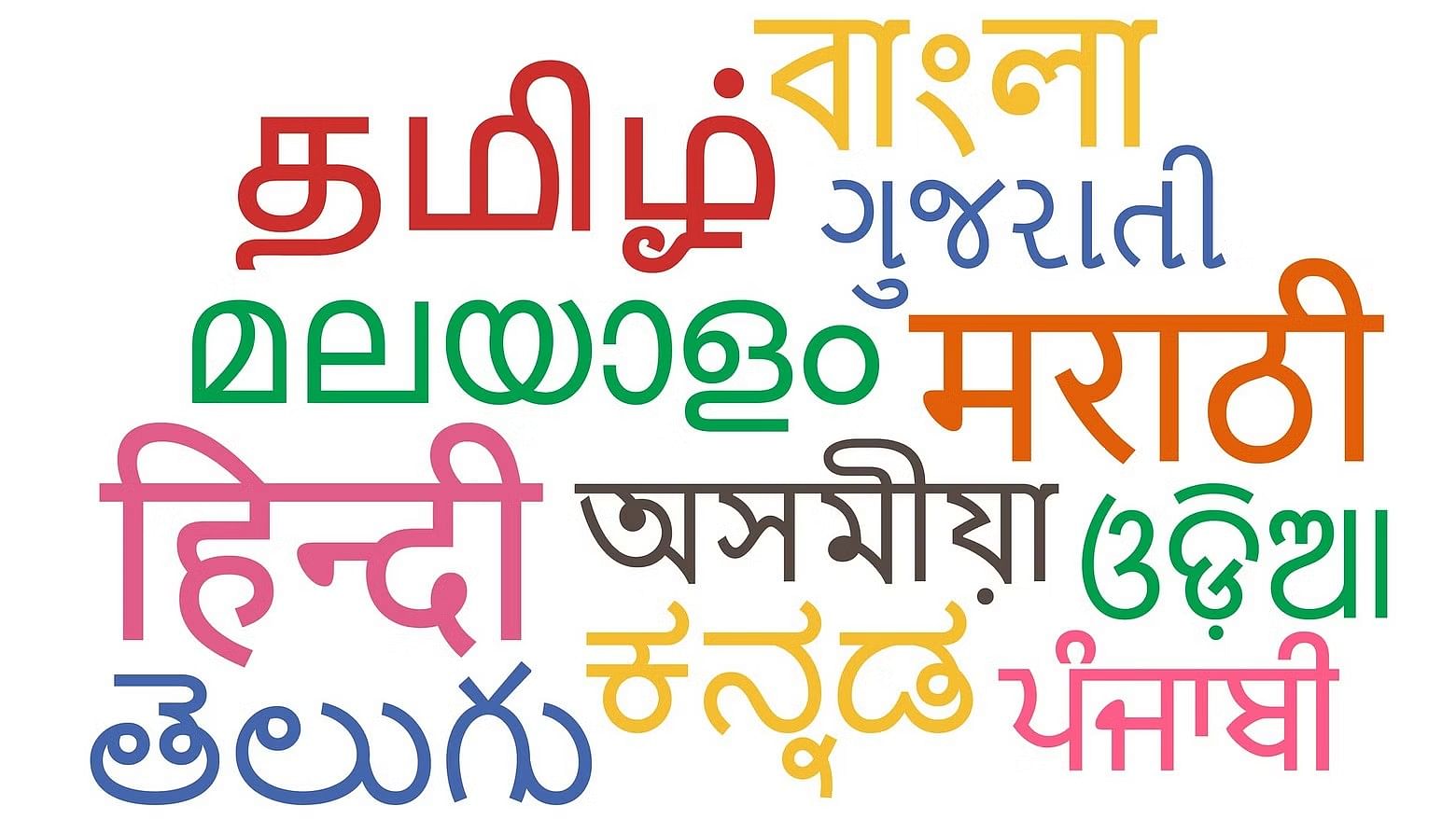
Representative image showing various languages.
Credit: iStock Photo
If democracy does not care for diversity, then it ceases to be a democracy. The heart of democracy is not in agreement, but in having space for debate, in having different views and different ways of looking at
the world. This is not a situation unique to India; rather it is prevalent all over the world.
India, Indonesia, Papua New Guinea and Nigeria put together have about half of the world’s languages in existence. But in all these countries with the maximum number of languages in existence, there is a huge amount of language deaths being reported. And what are the processes and consequences of the death of a language? When the last speaker stops speaking or when a large number of speakers migrate out of one language to another one, that is what makes a language disappear.
For example, when the last speaker of the Bo language (Aka-Bo) of the Andaman Islands, Boa Sr, passed away, the language died with her. Similarly, when the last Majhi speaker in Sikkim died, the language also ceased to exist. But with the sinking of those words, a tradition of knowledge which has been in existence for thousands of years has also gone down. For some languages, this tradition of knowledge has been 70,000 years old.
Occasionally, people inquire about the reasons behind the death of a language. Is the government alone responsible, or the education policy, or is it the poor quality of census that is responsible? Can it be perceived as an assault of globalisation? Or is it because of colonialism and its after-effects that the languages are in decline? Can we blame print technology for that matter? Considering all these factors, there is a far more substantial explanation to these questions.
Humans have been an evolving species. In the process of that evolution, during the last five lakh years, humans had used only gestures for communication in the first couple of lakh years. Subsequently, they began using tones, textures and music for communication. But now it appears that humans are moving out of sound-based languages towards image-based languages. The Broca’s lobe is now showing great fatigue; children no longer wish to either read or write.
We are at a turning point in our evolutionary history. When we arrived at this turning point, since language was the foundation of knowledge, most fields of knowledge also started collapsing from their own traditional base. In fact, for quite some time now, new disciplines have been emerging, because the nature of knowledge is going to be very different in the coming years. However, we may continue to speak a few words but the ability of the words to carry their respective meaning will be lesser than what it is now.
When knowledge is rapidly passing through a major epistemic shift, the state has a major role to play in terms of language policy. It is not sufficient for the state to just declare some awards or set up a few institutions for the so-called languages; there are numerous additional considerations about language that the state must address. Humans have amassed knowledge in language for the last 70,000 years through an enormous amount of labour. Each one of us has contributed to its development. The intricate workings of the bio-chemicals in our brains must have required a substantial amount of labour.
The situation of the languages in the world, more particularly the languages of indigenous peoples, marginalised and minority communities, and of the cultures that experience alien cultural domination has become precarious. The alarm to be raised will not be even a day too early.
Yet, it would be ambitious to hope that this task can be achieved even to a small degree by merely placing the onus and the responsibility on State parties.
The mission will have to be carried out, through the agency of the nation states and independent of it, through a large number of civil society actors — universities, literary and linguistic academies, good-will societies and associations, non-governmental organisations,
individual scholars, researchers and activists.
Creation of texts, dictionaries, glossaries and grammars in the declining languages will be of use; documentation, museumisation and archiving too will be of some use. But if the languages are expected to survive, the speech communities need to be given the dignity and respect that they deserve, not as anthropological ‘others’, not as the last and under-developed traces of the self, but in their own right, as deserving of respect because of what they are. It takes centuries for a community to create a language. All languages created by human communities are our collective cultural heritage. Therefore, it is our collective responsibility to ensure that they do not face the global phonocide let loose upon the world.
(G N Devy is chairperson of The People’s Linguistic Survey of India)